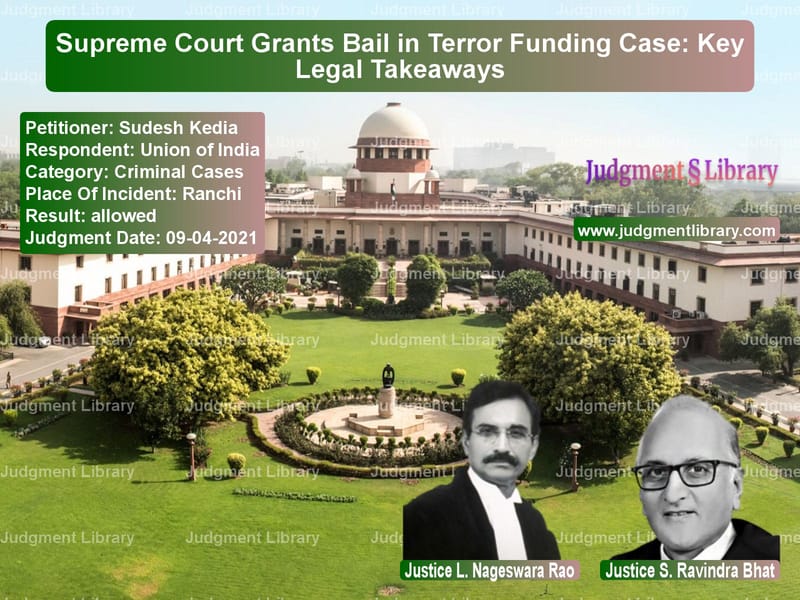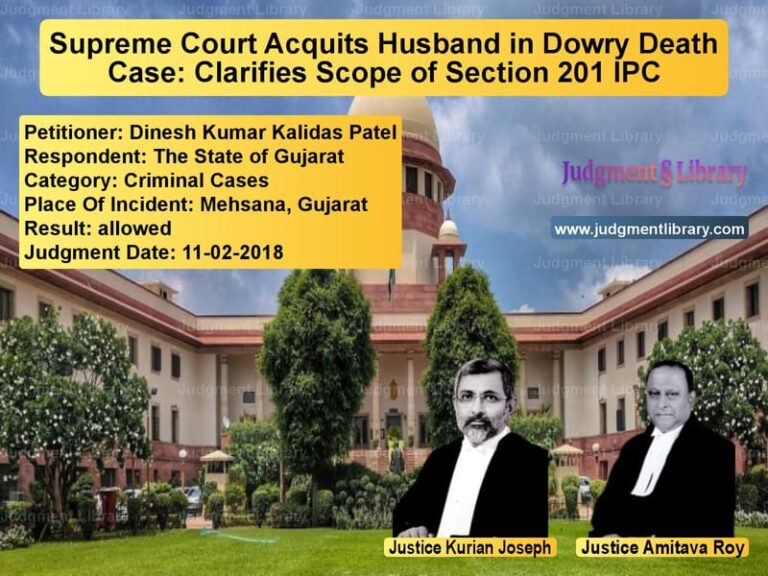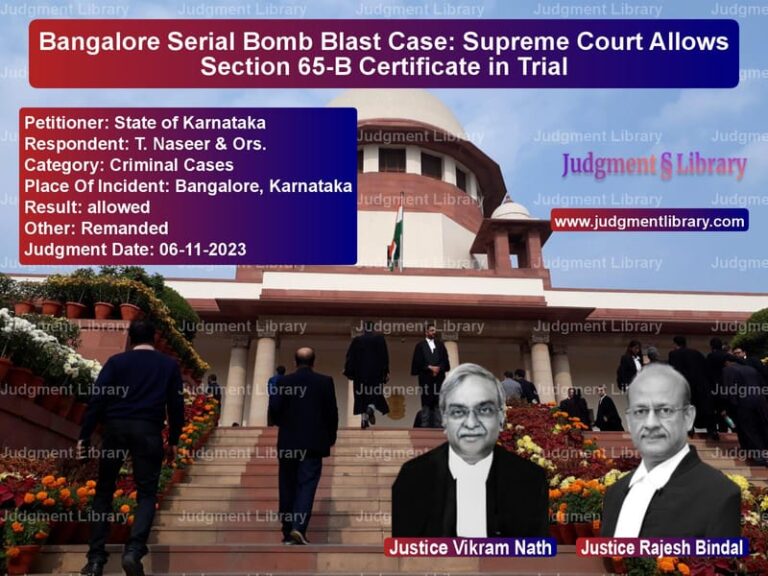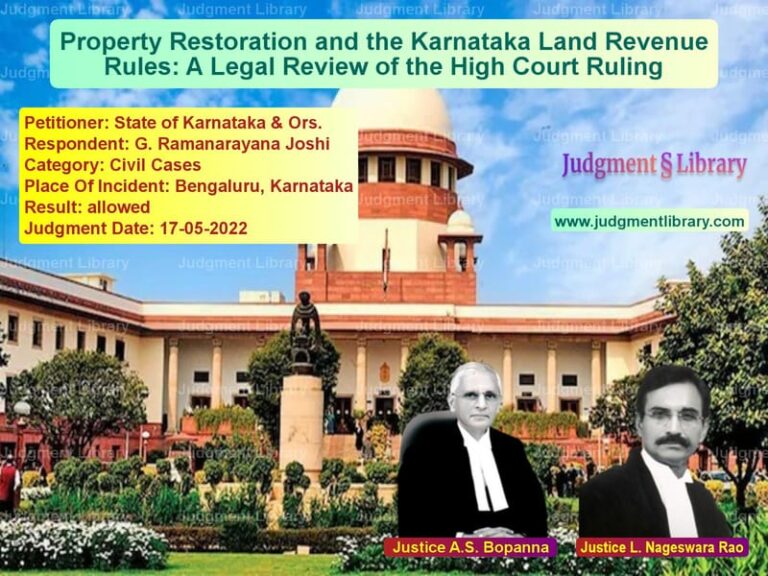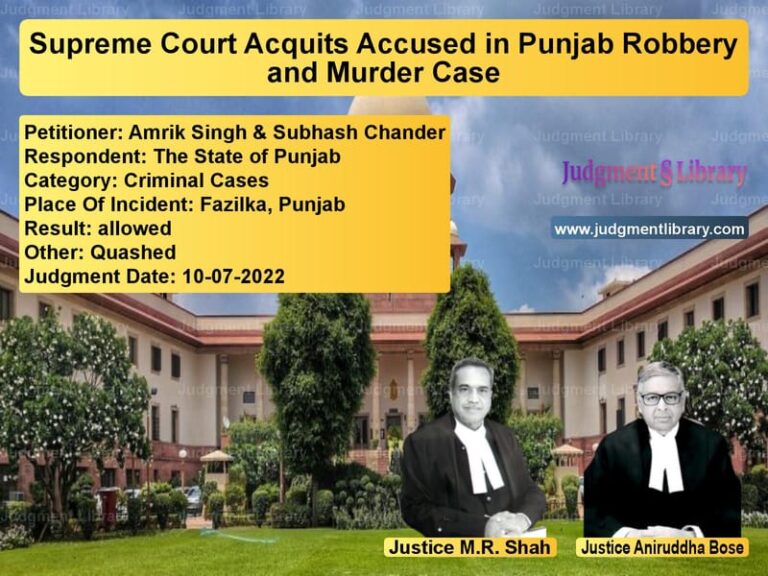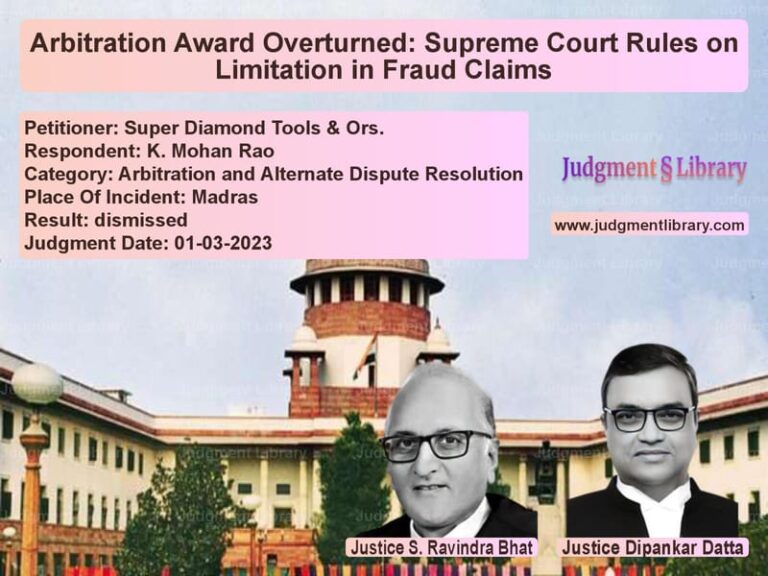Supreme Court Grants Bail in Terror Funding Case: Key Legal Takeaways
The Supreme Court of India recently ruled in favor of granting bail to the Appellant, Sudesh Kedia, who was accused under various sections of the Indian Penal Code (IPC), the Unlawful Activities (Prevention) Act (UAPA), the Arms Act, and the Criminal Law Amendment Act. This judgment provides clarity on the distinction between coerced extortion payments and active terror funding.
Background of the Case
Sudesh Kedia was accused of offenses under Sections 120B, 414, 384, 386, and 387 of the IPC, along with Sections 17, 18, and 21 of the UAPA. The charges stemmed from allegations that he made payments to the Tritiya Prastuti Committee (TPC), a proscribed terrorist organization, for the uninterrupted operation of his coal transportation business.
A First Information Report (FIR) was registered on January 11, 2016, against multiple individuals alleged to be operatives of TPC, who were accused of extorting money from coal traders and transporters. Investigations revealed that significant sums of money had been collected by the group through coercion. Based on supplementary charge sheets, Kedia was implicated in the case for allegedly providing financial support to the organization.
Petitioner’s Arguments (Sudesh Kedia)
- The Appellant contended that he was merely a victim of extortion and had no association with TPC.
- He argued that making payments under coercion does not amount to ‘terror funding’ as defined under Section 17 of the UAPA.
- He emphasized that he was a businessman who had no alternative but to comply with the demands of TPC to continue his operations.
- There was no evidence to suggest that he voluntarily raised or provided funds to the organization.
- He also contended that his meetings with TPC members were forced and had no criminal intent.
Respondent’s Arguments (Union of India)
- The prosecution alleged that the Appellant had made payments to TPC and was therefore complicit in funding their activities.
- It was contended that the Appellant’s payments were deliberate and not merely coerced, as he was in constant contact with the members of the organization.
- They cited the seizure of ₹9,95,000 from Kedia’s premises as proof of financial involvement in terror activities.
- Relying on National Investigation Agency v. Zahoor Ahmad Shah Watali, the prosecution argued that bail could not be granted where prima facie evidence supported charges under UAPA.
Supreme Court’s Analysis and Judgment
The Court examined whether the payments made by Kedia amounted to an offense under Section 17 of UAPA, which deals with raising or providing funds for a terrorist organization. It considered the following factors:
Read also: https://judgmentlibrary.com/supreme-court-upholds-conviction-in-tamil-nadu-custodial-death-case/
- The prosecution’s primary evidence was Kedia’s alleged payment of extortion money.
- The Court held that merely making payments under coercion does not automatically mean the payer is engaged in terror funding.
- The evidence did not establish that Kedia had the intention to further terrorist activities.
- The Appellant’s meetings with TPC members were insufficient to constitute a criminal conspiracy.
- Regarding the seized amount, the Court found no clear linkage to terror funding.
In light of these observations, the Supreme Court ruled:
- “Payment of extortion money does not amount to terror funding.”
- There was no prima facie evidence to show that the Appellant voluntarily conspired with TPC.
- The Special Court and the High Court erred in denying bail without adequately considering these aspects.
Accordingly, the Supreme Court set aside the High Court’s order and granted bail to Sudesh Kedia, subject to the satisfaction of the Special Court.
Impact of the Judgment
This ruling reinforces the legal distinction between victims of extortion and active participants in terror financing. The judgment clarifies that coerced payments, made under duress for self-preservation, do not equate to voluntary funding of terrorist organizations.
The case serves as an important precedent in terrorism-related financial investigations, ensuring that individuals who are forced into compliance do not face undue prosecution under anti-terror laws.
Petitioner Name: Sudesh Kedia.Respondent Name: Union of India.Judgment By: Justice L. Nageswara Rao, Justice S. Ravindra Bhat.Place Of Incident: Ranchi.Judgment Date: 09-04-2021.
Don’t miss out on the full details! Download the complete judgment in PDF format below and gain valuable insights instantly!
Download Judgment: sudesh-kedia-vs-union-of-india-supreme-court-of-india-judgment-dated-09-04-2021.pdf
Directly Download Judgment: Directly download this Judgment
See all petitions in Bail and Anticipatory Bail
See all petitions in Money Laundering Cases
See all petitions in Extortion and Blackmail
See all petitions in Judgment by L. Nageswara Rao
See all petitions in Judgment by S Ravindra Bhat
See all petitions in allowed
See all petitions in supreme court of India judgments April 2021
See all petitions in 2021 judgments
See all posts in Criminal Cases Category
See all allowed petitions in Criminal Cases Category
See all Dismissed petitions in Criminal Cases Category
See all partially allowed petitions in Criminal Cases Category

